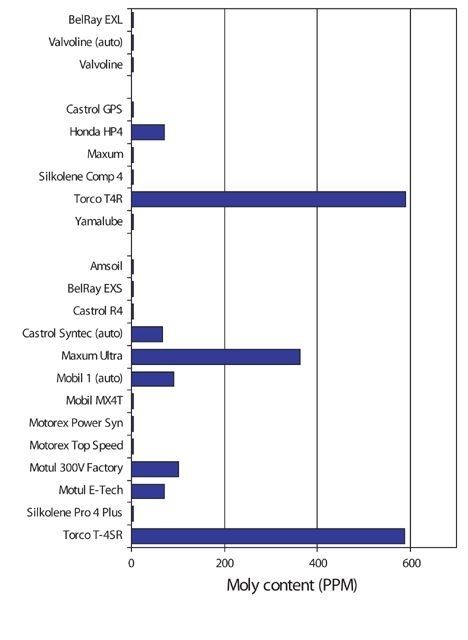Some say too much moly makes the wet clutch slip, etc, etc.
Looking at the various UAO's of motorcycle oils over the past year I see levels from almost none in some Castrols, with the majority of brands in the 40-80 ppm range. This range also includes the diesel oils commonly used. Then theres Motul 300 in the 150-175 range and Redline well over 350 ppm.
What is one to make of this wide variation in Moly? Or does it make any difference at all
to bikes with wet clutches?
Looking at the various UAO's of motorcycle oils over the past year I see levels from almost none in some Castrols, with the majority of brands in the 40-80 ppm range. This range also includes the diesel oils commonly used. Then theres Motul 300 in the 150-175 range and Redline well over 350 ppm.
What is one to make of this wide variation in Moly? Or does it make any difference at all
to bikes with wet clutches?



